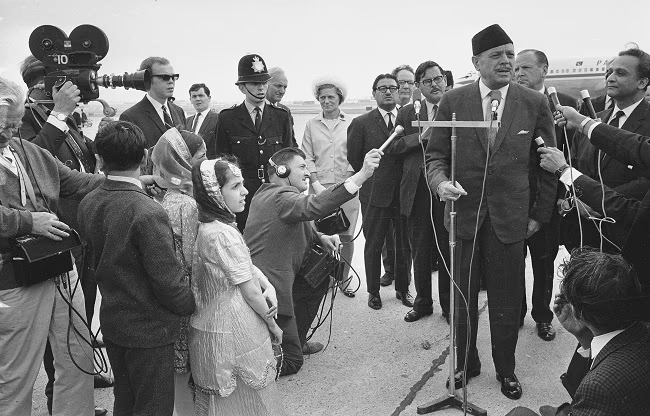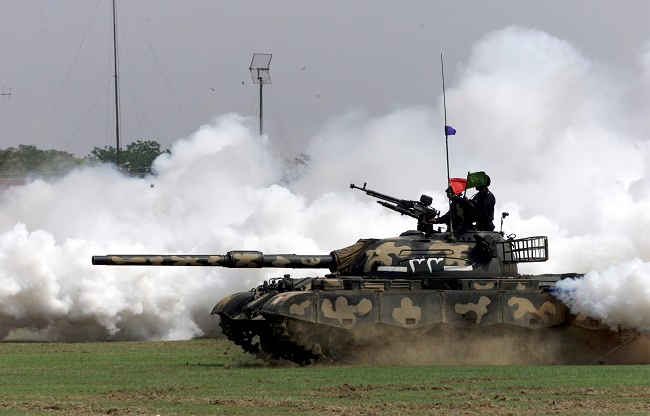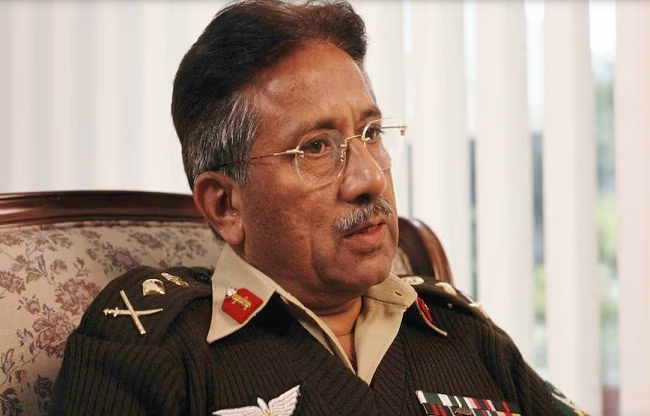Amid escalating tensions with India, Pakistan initially roared like a lion, but now pleads for assistance before powerful nations. Even Army General Asim Munir has seemingly left his bombastic rhetoric, with Pakistani media speculating about him going underground or fleeing the country. Be it Munir or his predecessors, every leader has fanned the Kashmir flame to strengthen their influence, inadvertently transforming the military into a shadow government capable of swaying political power.
When Pakistani citizens question inflation or unemployment, the military redirects their ire towards Kashmir, declaring India the true enemy whose defeat will pave the path to prosperity. This deceit diverts public anger, winning applause for the military. Consequently, the army receives massive budgets, special rights, and a significant foothold in politics.
To sum up, Kashmir serves as a perpetual guise, cementing military power to the extent that even the genuine government cowers. The real control lies with the military, which constructs and dismantles governments at will.
The partition era marked the beginning of leveraging Kashmir as a weapon.
In the late 1950s, Pakistan witnessed its first military coup. General Ayub Khan removed Feroze Khan Noon’s government and declared himself President as the economy faltered. Opting for war with India, Khan sought to distract from domestic troubles.

Source: aajtak
August 1965: Islamabad launched Operation Gibraltar, secretly deploying soldiers into Kashmir to isolate local Muslims against India. However, Kashmiris didn't revolt; on the contrary, they informed India about the infiltrators, sparking a conflict.
Despite the UN's intervention ending the war, General Khan portrayed the military as the nation's true protector, promoting tribal fighters and covert operations in Kashmir to keep real issues at bay.
Next came General Zia-ul-Haq.
Though technically not just a military leader but also PM and President, the latter roles were mere puppetry. Haq astutely leveraged the Kashmir issue by sending Afghan mujahideen, fighters against the Soviet Union, into Kashmir.
This led to the formation of insurgent groups like Hizbul Mujahideen—claiming to be Kashmiri but originated from Pakistan. Zia used this to divert attention from his dictatorship, martial law, and economic woes. It was during Zia's reign that Pakistan embarked on its nuclear arsenal journey.
Despite the US's focus on countering the Soviets (now Russia) in Afghanistan, Zia maintained his focus on Kashmir.

Source: aajtak
General Pervez Musharraf outpaced his predecessors.
In 1999, Musharraf devised the Kargil plot against India, deploying Pakistani troops discreetly into the Kargil region (now in Ladakh) and branding them as freedom fighters. He painted a picture of Kashmir resisting Indian rule while these were, in fact, Pakistani military personnel.
This narrative enhanced Musharraf's image as a strong leader while simultaneously aligning with America against the 9/11 terror attacks. This dual stance maintained the military's significance, both locally and internationally.
During 2007 - 2013, General Ashfaq Parvez Kayani held command.
Under Kayani, the Pakistani Army wielded the Kashmir issue to secure military funding and exert diplomatic pressure. Post the 2008 Mumbai attacks, Pakistan sheltered terror group leaders like Hafiz Saeed under the guise of fighting for Kashmir’s freedom, ensuring substantial military budgets.

Source: aajtak
Subsequent General Raheel Sharif inflamed tensions over Kashmir further during 2016 after the Uri attack and India’s surgical strikes.
In response to India’s counter-strike post Uri attack, Sharif intensified LoC gunfire, projecting Pakistan’s military as the formidable force against India. This narrative ensured that both the public and the government saw the military as the ultimate protector, granting it perpetual upper-hand.
Sharif maintained dual policies.
During Sharif’s era, while actions were taken against domestic terrorism, groups focusing on Kashmir like Lashkar-e-Taiba were untouched, creating a façade of a strict anti-terror stance while Kashmir policies continued unchecked.
By 2022, General Asim Munir took charge, maintaining status
This period was rife with political instability, where the military’s influence was evident. Munir’s rhetoric about Kashmir intensified, labeling it as Pakistan's jugular vein, essential for survival.
Munir reignited the doctrine that a Muslim-majority Kashmir shouldn’t belong to India. The nurturing of terrorism in Kashmir continued. Prior to the recent Pahalgam attack, Munir vocalized illogical statements about Kashmir. Now, conjecture surrounds Munir, suggesting he’s hiding out of fear of India’s stance.




